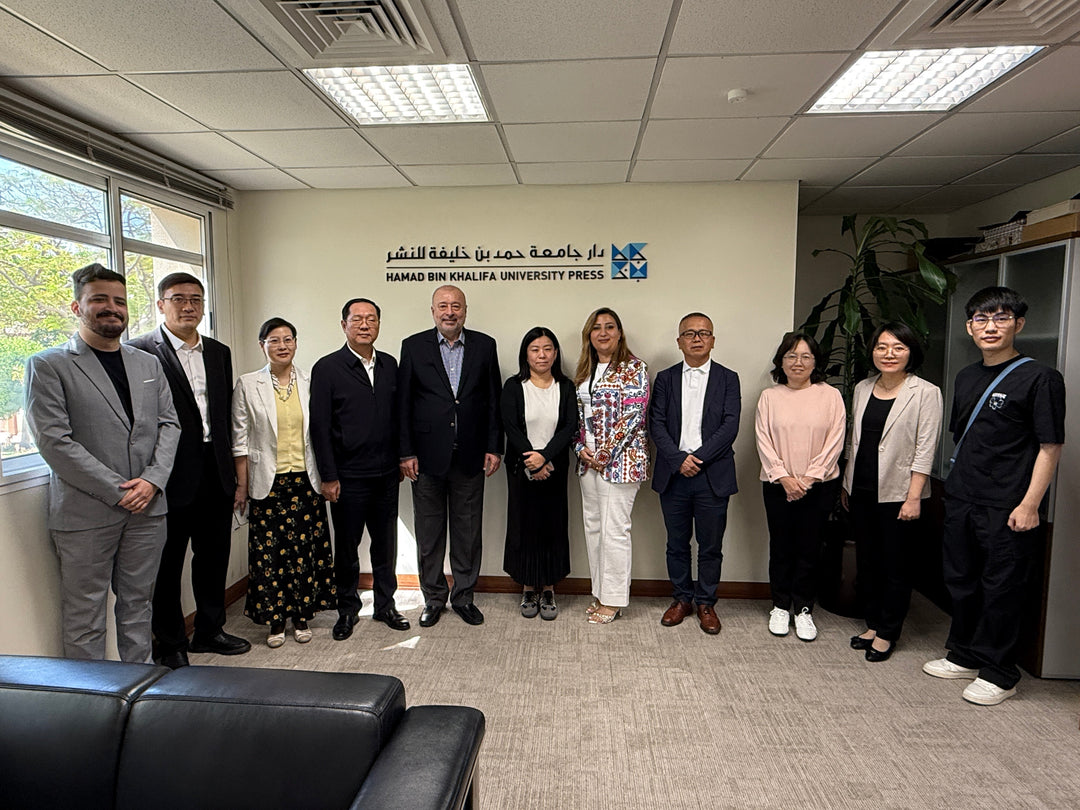HBKU Press Publishes Special Issue on First COVID-19 Conference in Iraq

Hamad Bin Khalifa University Press (HBKU Press) has recently published a special issue on the International Scientific Conference of Al-Nahrain College of Medicine and Iraqi Colleges of Medicine Confronting the COVID-19 Pandemic in the Journal of Emergency Medicine, Trauma and Acute Care (JEMTAC)
This first-of-its-kind conference aimed to provide a platform for demonstrating and analyzing observational and analytical studies conducted by the colleges of medicine and health bodies in Iraq. Also discussed were the heavy burdens of COVID-19 and the various efforts and solutions explored locally in Iraq. The event presented Iraq’s case comprehensively enough to be utilized as a model for other low-income and still-developing countries, particularly those of the Global South or the Middle Eastern region.
The impact of COVID-19 was negatively and universally recognized in a wide variety of industries and social spaces. Due to the ubiquitous nature of the virus, examining the Iraq case provided a supplemental source of knowledge as the world continues to navigate the safe management of this pandemic. HBKU Press has now published and made live all the proceedings from the conference in JEMTAC on QScience.com - an open access platform available to all for easy review.
“The publication of the proceedings of the first COVID-19 Conference in Iraq on QScience.com will definitely increase the international awareness and dissemination of the cutting-edge research presented at this event,” noted Dr. Rima Isaifan, Head of Academic and Journals Publishing at HBKU Press. “QScience.com reaches a wide range of audiences both local and global, allowing for the development and expansion of scholarship and research from and to the international researchers.”
Participating studies and selected manuscripts in this special issue delve into the unique challenges faced by health education institutions over the buildup of the COVID-19 pandemic, since medical education in the Colleges of Medicine was particularly impacted by the spreading virus and subsequent quarantining. The accounts highlighted the integral role of medical institutions during health crises, and the invaluable contributions they offer in the realm of research and identifying solutions to the unprecedented challenges brought on by the pandemic. It is worth noting that 66 observational and experimental studies on COVID-19 participated in the conference and 14 full articles on these studies are published in this special issue.
Though published material covers findings from studies already concluded, the content is still, even more importantly, future-facing. The medical studies in this special issue provide invaluable insight on how to manage potential pandemics as they arise, as well as community studies on population attitudes towards the COVID-19 vaccination programs, efficiency and adverse effects of current therapeutics and immunization programs, severity and spread rate of the disease, the use of social media and telemedicine for online consultation, the impact of the pandemic on surgical and medical practice, and the particular radiological changes in the lungs of COVID-19 patients.
Dr Ahmed Sahib Abdulamir, the editor of this special issue, commented: “HBKU Press’s publication of the conference proceedings is an invaluable opportunity to share the knowledge, ideas, and experiments already conducted on COVID-19 for the general benefit. New tactics and management plans presented by this conference are necessary for future aptitude to tackle any similar health crisis; moreover, one of the most important lessons from this pandemic is how to exploit the current digital infrastructure in telemedicine, online medical education for medical students and online health education of general population.
The spread of the pandemic led to an increase in the use of social media and the general use of the Internet for medical understanding. The highlighted article “Use of Social Media for Online Consultation During the Covid-19 Pandemic: Attitudes of the Medical Professionals”, by Al-Mansouri and Al-Obaidi, precisely examines the advent of telemedicine over the various phases of the pandemic. The spectrum of online consultation ranges from advising and diagnosing to providing follow-ups.
The COVID-19 pandemic presented a wide range of challenges to medical professionals and social communities alike; this special issue serves to highlight the unique problems and solutions posed by those in the medical field and offers comprehensive findings ranging from impacts on medical education, to infection and spread, to the resourceful use of social media and telemedicine. The special issue compiles this critical data for review and understanding of pandemics now and potential, particularly as it pertains to developing nations globally or regionally in the Middle East.






